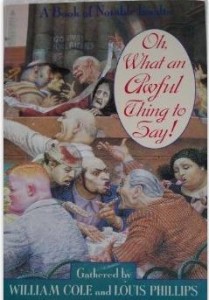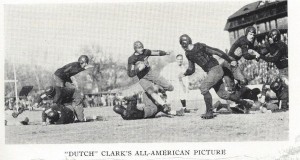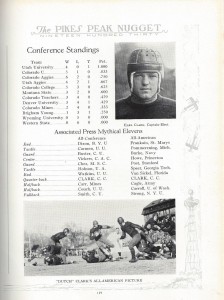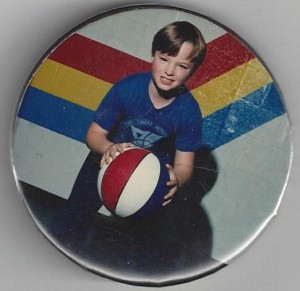Luckily, most interview subjects are cordial during the session. But the others more than make up for it. Take for example, the reply given to the BBC’s Sandra Harris in an interview with British author Barbara Cartland…
Harris: Have English class barriers broken down?
Cartland: Of course they have, or I wouldn’t be sitting here talking with someone like you.
Ouch.
There is a bit o’ snide. Personally, I prefer the snappy comeback. My best in-person snappy is the one my father volleyed back when I pointed out the orchestral music he was listening to was actually a Beatles song. “Too bad the Beatles can’t play it like that,” he replied, without missing a beat.
Another quick-draw that remains one of my all-time favorites came from musician Frank Zappa. The interviewer was a fellow named Joe Pyne, who employed an argumentative and confrontational style. Pyle walked on a prosthetic leg after a bout with cancer, but it didn’t slow down his verbal assaults.
Joe Pyle: “So Frank, you have long hair. Does that make you a woman?”
Frank Zappa: “You have a wooden leg. Does that make you a table?”
Ooooh.
Merely repeating the quote from Winston Churchill leaves me red-faced with embarrassment for Betsy Braddock, who encountered the British Prime Minister at a party.
Braddock: Winston, you’re drunk.
Churchill: Bessie, you’re ugly, but tomorrow I shall be sober.
Eeek.
Then, there are those casual observations that go beyond the mark, like that of then Senator Robert Dole of Kansas. He remarked on the Washington party that brought together former presidents Jimmy Carter, Gerald Ford, and Richard Nixon, a trio that Dole described as “See No Evil, Hear No Evil, and Evil.”
Pow.
Then again, some observations jab with a sharpened funny bone, like the words of comedienne Joan Rivers describing Mick Jagger and his lips of renown.
“I saw him suck an egg out of a chicken,” said Rivers. “He can play a tuba from both ends. This man has got childbearing lips.”
Oh, what an Awful Thing to Say. In fact, that’s the name of the book, with quotes gathered by William Cole and Louis Phillips. It may say something of the acerbic wit of Oscar Wilde that so many of his quotes found their way into the pages. He praises George Bernard Shaw as “an excellent man. He has not an enemy in the world and none of his friends like him.”
Bam.
Scanning through the volume makes me wonder whether these famed talkers stayed up late dreaming up these barbs and jotting them down in an ever-handy notebook. I suspect though, that some people have sharp enough tongues that – if they ever nodded off – the pillow impaled at their lips would smother them before sunrise.
No insults here, so – Come Visit!
McHuston
Booksellers & Irish Bistro
Rose District
122 South Main St. Broken Arrow, OK!



